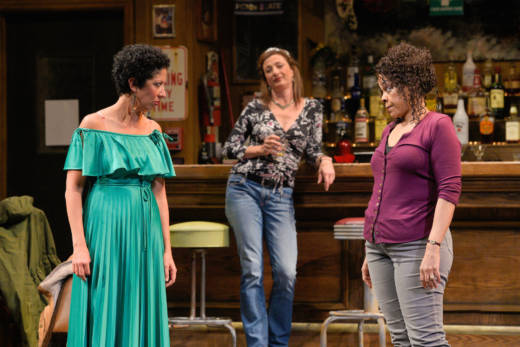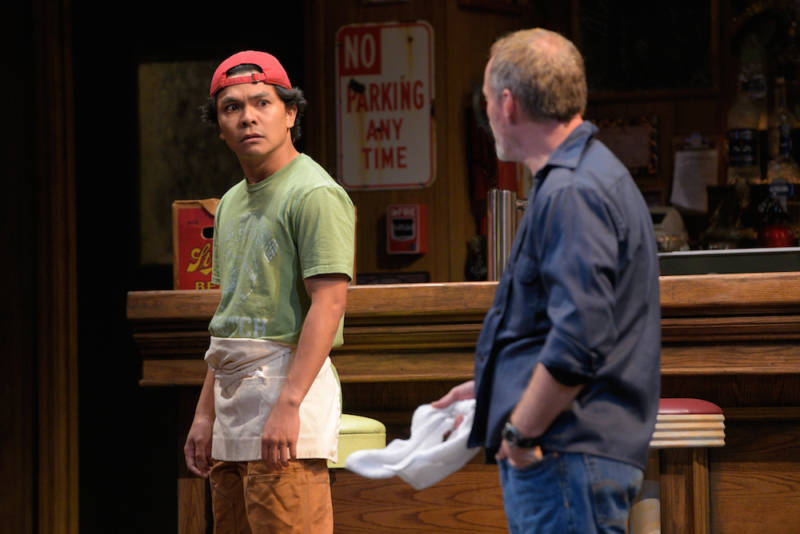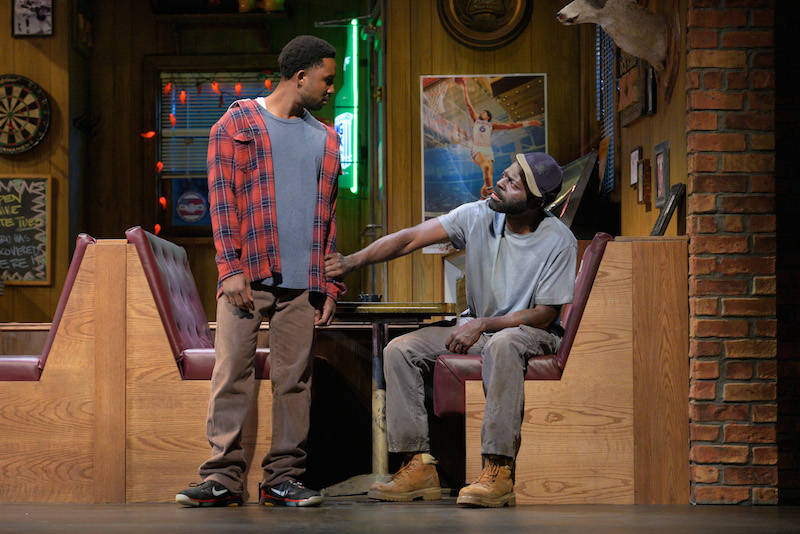After the 2016 election of Donald Trump, almost every week brought a new book regarding race, or class, or both, many focusing on the plight of the economically forgotten residents in “red” states—such as Hillbilly Elegy by J.D. Vance, and Strangers in Their Own Land, by Arlie Hochschild. And while those books captured many salient aspects of the slow erosion of dreams in devastated communities, none of them captured as fully nuanced a portrait of their crisis, generations in the making, as Lynn Nottage’s Pulitzer-winning play Sweat.
Set in the depressed steel town of Reading, Pennsylvania—for a time the poorest in the nation—Sweat is the culmination of many months of research: Nottage interviewed the residents of Reading, hanging out in their bars, observing their day-to-day reality. Originally commissioned by the Oregon Shakespeare Festival for their American Revolution series, Nottage’s Sweat takes place in 2000 and 2008, and debuted a full year before the 2016 election. Yet its clear-eyed portrayal of a factory-town population whose factories are shuttering stirred the New Yorker to label it “the first theatrical landmark of the Trump era.”
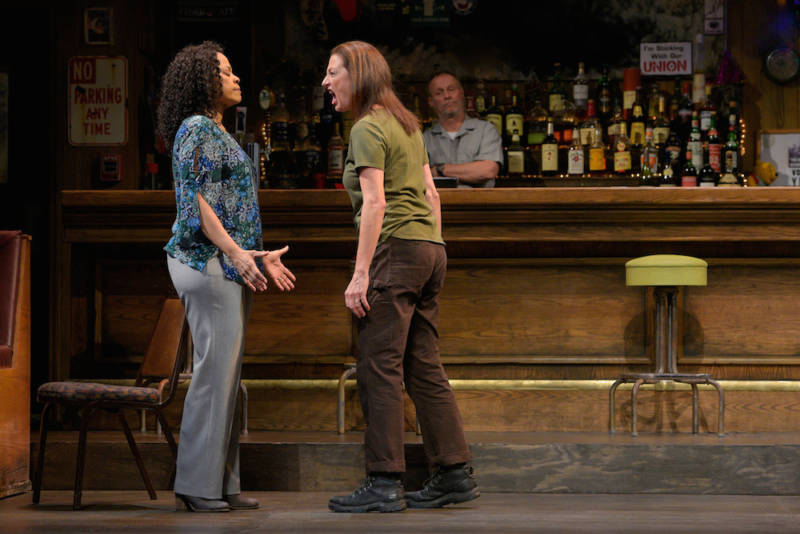
Now, two years into Trump’s presidency and with midterms looming on the horizon, Sweat has become a timely (and timeless) ode to an American Dream-turned-nightmare, and to the struggles of a community poor in options but rich in spirit. As it is, Reading still lives with the real-life impact of the fictionalized events depicted onstage at A.C.T.’s Geary Theater.
Pulling no punches, Sweat, directed by Magic Theatre’s Loretta Greco, begins in 2008 in a stark room where African-American parole officer Evan (Adrian Roberts) is patiently grilling his petulant charge, Jason (David Darrow), his face obscured by a crude mass of neo-nazi tattoos and a very prominent black eye. After dismissing Jason, Evan meets with another agitated ex-con, Chris (Kadeem Ali Harris), who reveals that he’d run into Jason, a figure from his past, and wasn’t prepared for the memories raised by their accidental reunion.
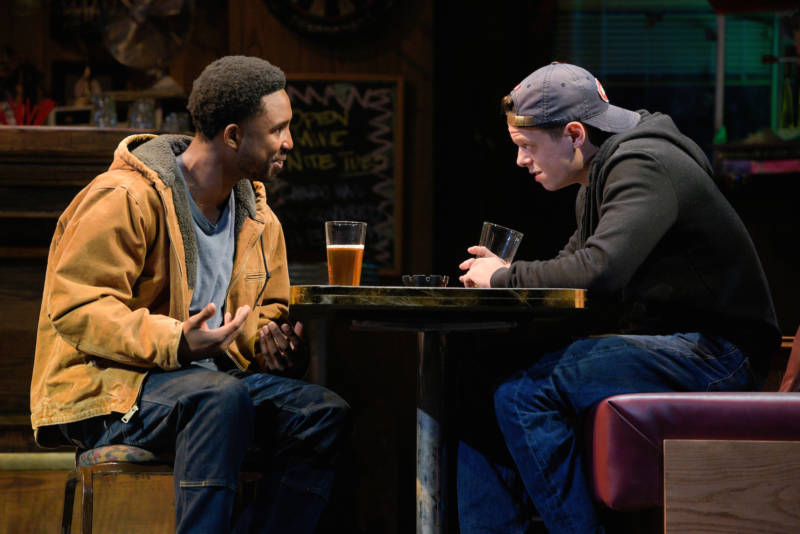
Quickly rolling back in time to get the rest of their story and that of the tight-knit community that raised them, much of Sweat takes place in 2000, in a bar where Stan (Rod Gnapp), himself a former factory worker, presides over the taps. Serving as the sounding board for the floor crew of Olstead’s (a fictional steel-tubing plant inspired by Reading’s real-life Hoffmann Industries), Stan is privy not just to the day-to-day dramas of his regulars, but to an understanding of the economic and political long game that will soon tear their aspirations apart.
